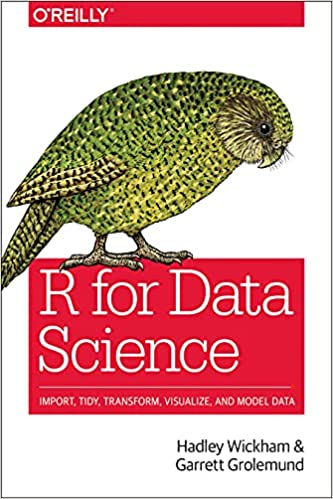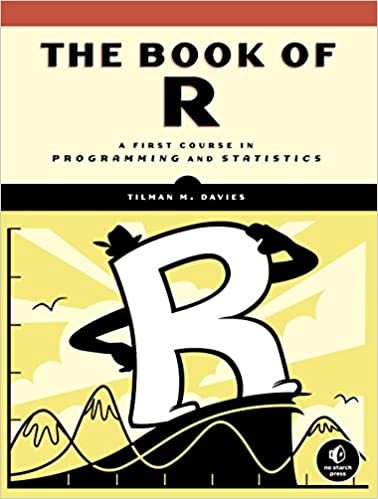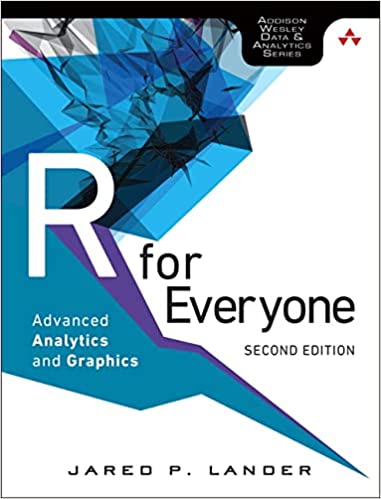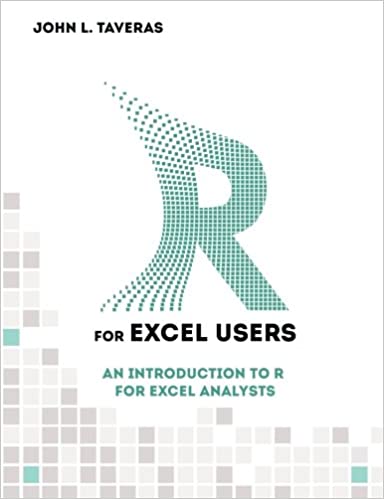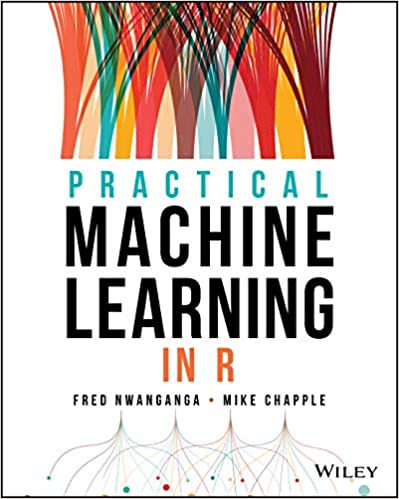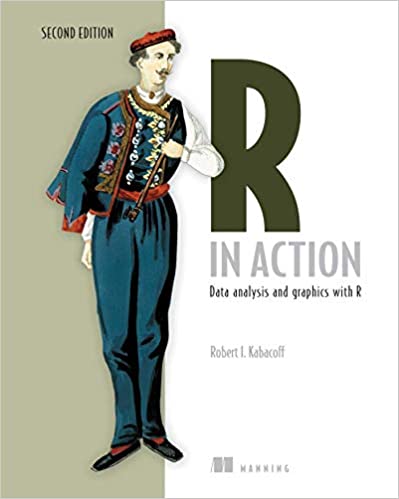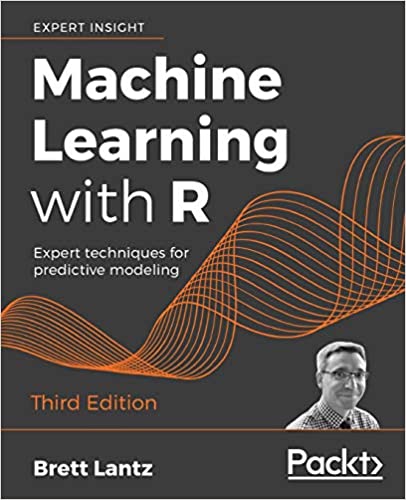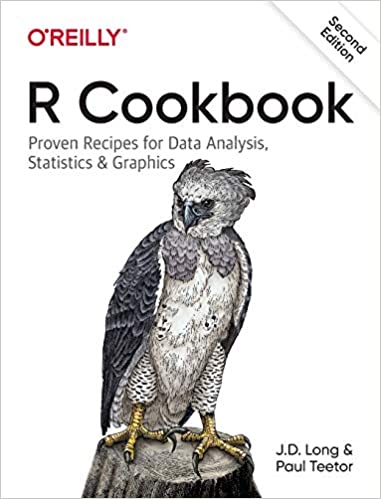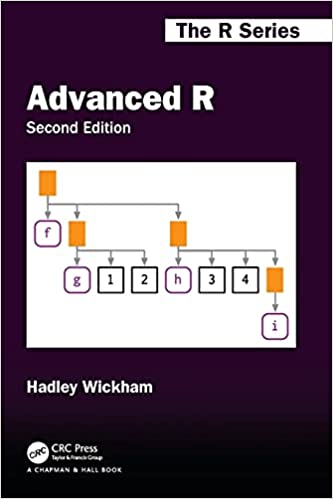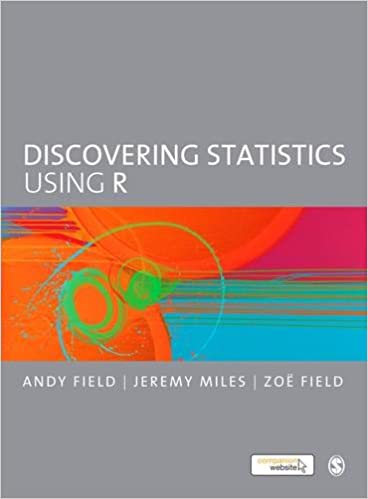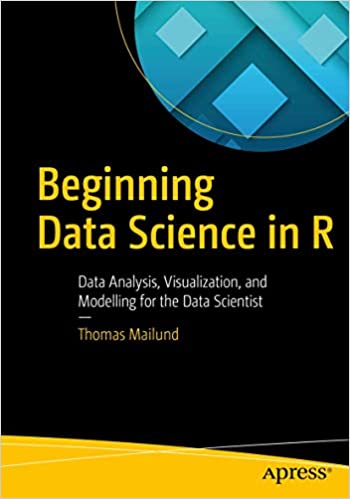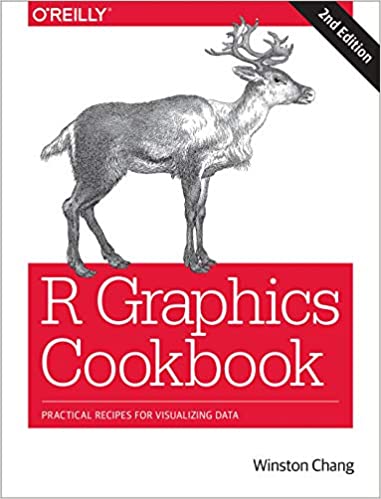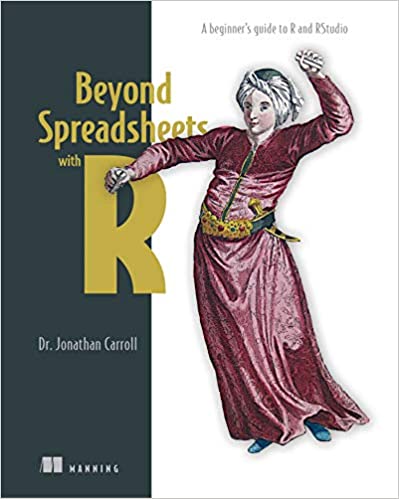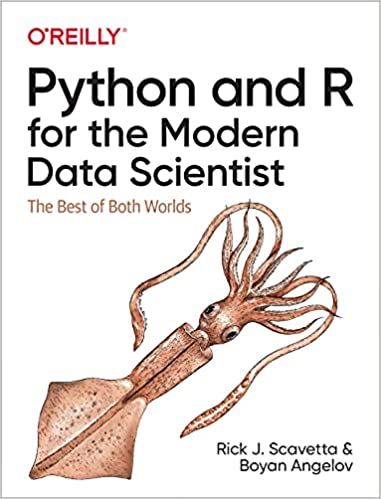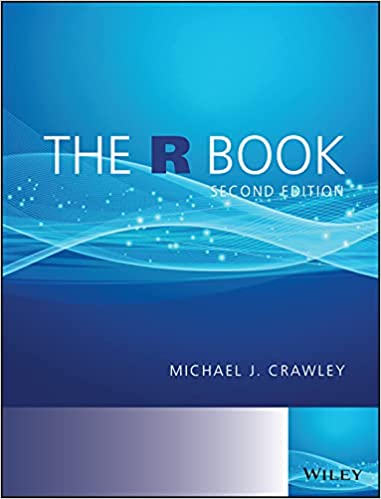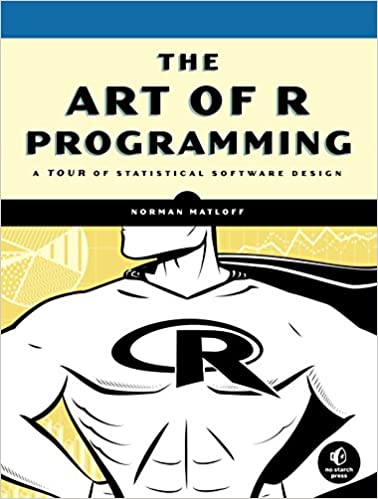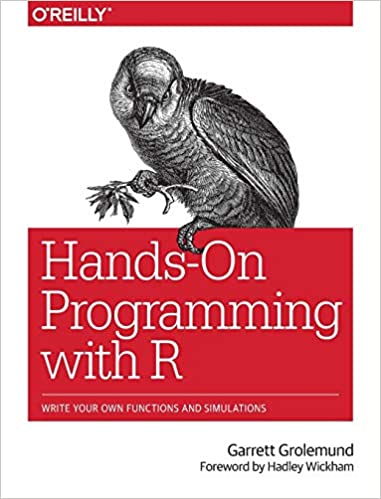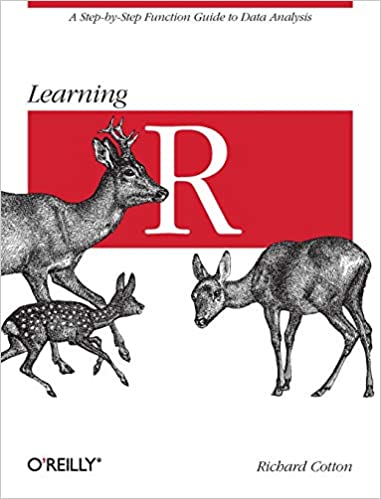Table of Contents
🧠 Did you know? According to Data Flair, data scientists who use R programming make an average of:
per year
What is R programming?
R is a programming language and environment intended for graphics and statistical computing.
It’s a popular language. In fact, in the TIOBE index, R programming ranks 14th.
The R environment is a GNU package written in C, Fortran and R.
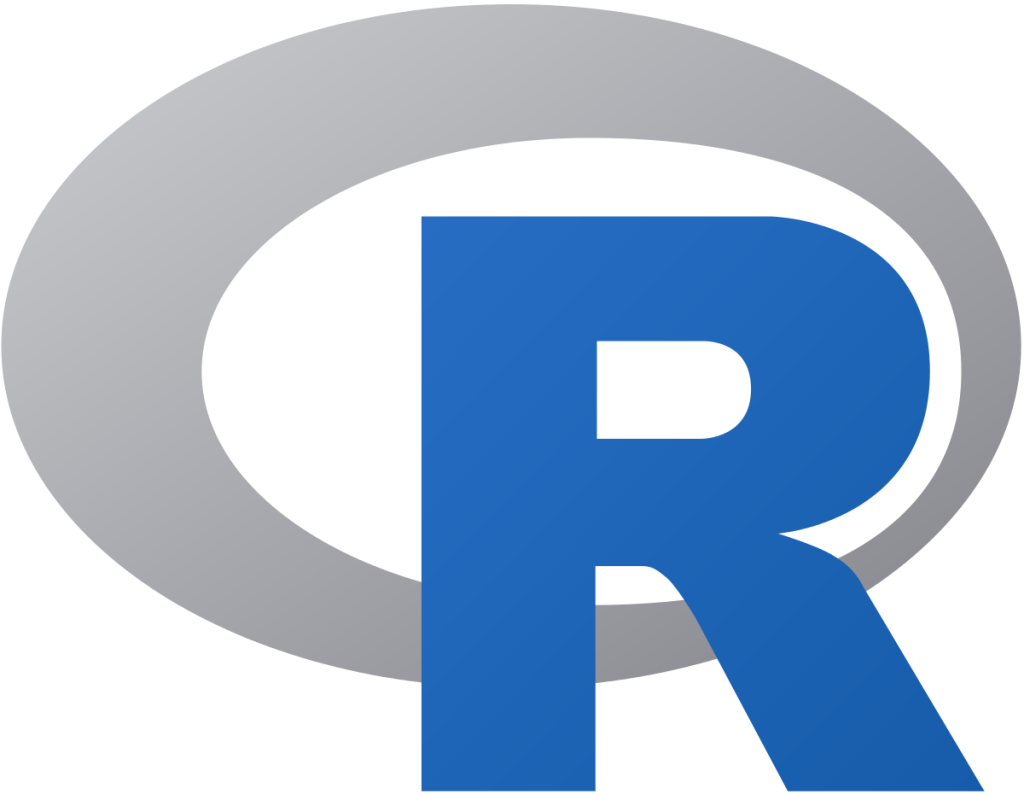
Who uses R programming?
Data scientists use R programming. As a matter of fact, according to KDnuggets, some 43% of data scientists use R programming for statistical problems.
It’s also widely used among statisticians and data miners in order to develop statistical software and/or analyze data.
What companies use R programming?
Some companies that use R programming include:
✅ Uber
✅ Airbnb
✅ Firefox
✅ Amazon
And beyond.
This post contains affiliate links. I may receive compensation if you buy something. Read my disclosure for more details.
TLDR: Best R Programming Books
🔥 Best Overall 🔥
R for Data Science: Import, Tidy, Transform, Visualize, and Model Data
💥 Best for Newbies 💥
The Book of R: A First Course in Programming and Statistics
&
R for Everyone: Advanced Analytics and Graphics
💸 Best Value 💸
R for Excel Users: An Introduction to R for Excel Analysts
Best R Programming Books
1. R for Data Science: Import, Tidy, Transform, Visualize, and Model Data
↘️ Ideal for: R programming newbies
↘️ Topics covered: wrangling, programming, exploring
R for Data Science is one of the best R programming books for code newbies and experienced R programmers alike.
Don’t believe me? The reviews don’t lie.
➡️ R for Data Science is one of the best R programming books for learning data science.
You’ll learn the big picture of the data science cycle alongside basic but important tools.
First you’ll find introductions to R programming, RStudio and the tidyverse. Then with ample examples, you’ll learn how to:
✅ wrangle data
✅ examine and test your data
✅ model your data
✅ use R Markdown to communicate results
And much more.
See what R programmers are saying about R for Data Science:

… It is a must have if your are a beginner or intermediate-level user of R for data analysis …
– QZ, R Programmer
🔥 Geena’s Hot Take
The numbers don’t lie. With over 1000 reviews, R for Data Science is by far the most sought after R programming book.
Do yourself a favor and get started with the best of the best.
⚙️ Interactivity more your speed? Check out the course Introduction to R on DataCamp.
2. The Book of R: A First Course in Programming and Statistics
↘️ Ideal for: R programming newbies
↘️ Topics covered: fundamentals, statistical concepts, functions, libraries
The Book of R is a beginner-friendly guide to R programming. One of the best, in fact (tied with R for Everyone). But this book is a whopper, so strap in and get ready to learn.
➡️ The Book of R is one of the best R programming books for beginners who want to learn as much R as possible.
Starting with the basics, you’ll learn things like how to write simple programs and handle data. Then you’ll learn more advanced concepts such as performing statistical tests and summarizing your data.
But in between, you’ll find dozens of exercises where you’ll work on:
✅ writing data frames and creating functions
✅ exploratory data analysis and regression modeling
✅ drawing conclusions from your data
✅ accessing R’s libraries, data sets and functions
And beyond.
By the end of this book, you’ll have a combined understanding of statistics and the functionality of R programming.
⚙️ Learn R from the ground up with the interactive course Learn R from Scratch on Educative.io.
3. R for Everyone: Advanced Analytics and Graphics
↘️ Ideal for: R programming newbies
↘️ Topics covered: R, packages, math
R for Everyone is another one of our favorite R programming books for newbies. It’s similar to The Book of R, but it’s a bit shorter.
➡️ R for Everyone is one of the best R programming books for beginners that want a lighter introduction to R.
In this guide, you’ll focus on the 20 percent of R programming that’s responsible for 80 percent of its functionality (the Pareto principle). You’ll find tons of hands-on exercises alongside sample code.
You’ll start with the absolute basics like downloading and installing R. Then, with its easier-to-learn format, you’ll explore:
✅ RStudio and R packages
✅ variables and functions
✅ exploiting data structures
✅ controlling program flow
✅ programming statistics
And much, MUCH more.
See what R programmers are saying about R for Everyone:
Well laid out and gives a good introduction to R…
– Customer, R Programmer
⚙️ Take a deep dive into R programming with the video Specialization Data Science – Foundations using R on Coursera.
4. R for Excel Users: An Introduction to R for Excel Analysts
↘️ Ideal for: Excel analysts new to R programming
↘️ Topics covered: data manipulation
R for Excel Users is one of the best R programming books for Excel analysts.
➡️ R for Excel Users is one of the best R programming books for aspiring R developers on a budget.
Focusing almost exclusively on data manipulation, you’ll learn about creating, modifying and summarizing data sets. You’ll also dive into R fundamentals such as functions and vectors.
You won’t find much technical lingo here. Rather, you’ll find a simplified approach to R programming.
5. Practical Machine Learning in R
↘️ Ideal for: business analysts, data scientists experienced in R programming
↘️ Topics covered: machine learning with R programming
Machine Learning in R published by Wiley is a hands-on guide where you’ll learn how to solve business problems with self-learning computer algorithms.
Sounds like a lot to chew, but not to worry. You’ll find plenty of use-cases and illustrations that show you:
✅ data wrangling
✅ R programming with RStudio
✅ regression and classification
✅ performance evaluation
And beyond.
➡️ Practical Machine Learning in R is one of the best R programming books for machine learning.
After exploring data management techniques, you’ll touch upon unsupervised learning and improving model performance.
This book is for experienced R programmers.
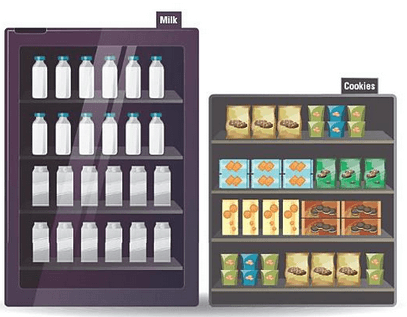
6. R in Action: Data Analysis and Graphics with R
↘️ Ideal for: R programming newbies
↘️ Topics covered: fundamentals, statistics
R in Action published by Manning offers a complete tutorial on R programming. But it doesn’t stop there.
➡️ R in Action is one of the best R programming books for beginners learning statistics.
With over 160 graphs and examples, you’ll also discover:
✅ managing, analyzing and visualizing data with R
✅ techniques to create packages and debug programs
✅ object-oriented programming in R
In all, you’ll learn beginner, intermediate and advanced concepts in R programming.
Finally, you’ll find a crash course in statistics.
See what R programmers are saying about R in Action:
The most fun you can have with your clothing on.
– Eileen K. Halladay, R Programmer
7. Machine Learning with R: Expert Techniques for Predictive Modeling
↘️ Ideal for: new and experienced R programmers
↘️ Topics covered: preparing data, predicting future events
Machine Learning with R is similar to Practical Machine Learning in R. But Machine Learning with R is for both new and experienced R programmers.
With this hands-on guide, you’ll discover insights and predictions while visualizing your discoveries.
➡️ Machine Learning with R is one of the best R programming books for students who want to pursue machine learning.
You’ll start with the origins of machine learning and quickly evolve to learn how to:
✅ prepare your data
✅ classify outcomes
✅ predict future events
✅ model complex processes
✅ evaluate and improve models
And much, MUCH more.
8. R Cookbook: Proven Recipes for Data Analysis, Statistics, and Graphics
↘️ Ideal for: new and experienced R programmers
↘️ Topics covered: data analysis, statistics, graphics
R Cookbook is different than any other book on our list.
In addition to learning the fundamentals, you’ll discover a series of recipes, or commonly found problems in R programming. Over 275 in fact.
➡️ R Cookbook is one of the best R programming books for beginner and intermediate R programmers.
These problems cover everything from the basics like input/output all the way up to more advanced concepts like statistics and linear regression.
9. Advanced R
↘️ Ideal for: advanced R programmers
↘️ Topics covered: foundations, functional programming, OOP
Advanced R is the only R programming book on our list that covers advanced R concepts. And with consistent 5-star reviews, we think it’s the only book you’ll need.
➡️ Advanced R is one of the best R programming books for advanced R users.
The book is divided into 5 key sections:
✅ Foundations
✅ Functional Programming
✅ Object-Oriented Programming
✅ Techniques
By the end of this book, your R programming skills should skyrocket to the next level.
Fun fact: Author Hadley Wickam is the Chief Scientist at RStudio.
10. Discovering Statistics Using R
↘️ Ideal for: statistics newbies, R programming newbies
↘️ Topics covered: correlation, regression, etc.
Discovering Statistics Using R takes a lighthearted approach to a heavy topic: statistics. And you’ll learn statistics through the lens of R programming.
➡️ Statistics Using R is a top-rated book tackling statistics with R programming.
Starting with the absolute basics, you’ll discover the fundamentals of R programming. Once you’re comfortable with the language, you’ll learn how to incorporate R with concepts like:
✅ correlation
✅ regression
✅ logistic regression
And much more.
You’ll find hundreds of examples alongside self assessment tests. There’s also an accompanying website.
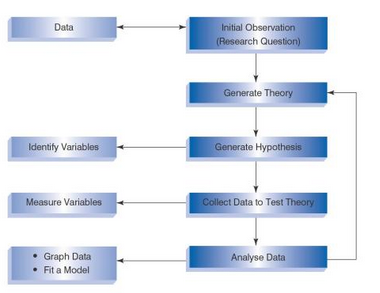
11. Beginning Data Science in R: Data Analysis, Visualization, and Modelling for the Data Scientist
↘️ Ideal for: R programming and data science newbies
↘️ Topics covered: data analysis, data visualization, modeling
Beginning Data Science in R will help you learn best practices while you learn data analysis and software development using R programming.
➡️ Beginning Data Science in R is one of the best R programming books for learning data science concepts.
You’ll find techniques for tackling data manipulation alongside data analysis. For example, you’ll learn how to:
✅ visualize and explore data
✅ build an R package
✅ practice version control
✅ optimize your code
And beyond.
12. R Graphics Cookbook: Practical Recipes for Visualizing Data
↘️ Ideal for: experienced R programmers
↘️ Topics covered: data visualization
Like R Cookbook, R Graphics Cookbook contains a series of recipes for solving common problems in R programming. R Graphics Cookbook focuses on data visualization.
➡️ R Graphics Cookbook is one of the best R programming books for data visualization.
Geared towards experienced R programmers, you’ll explore:
✅ R’s default graphics
✅ ggplot2
✅ using colors in plots
✅ creating network graphs and heat maps
✅ using tidyverse packages
And beyond.
13. Beyond Spreadsheets with R: A Beginner’s Guide to R and RStudio
↘️ Ideal for: R programming newbies
↘️ Topics covered: data analysis
Like R in Action, Beyond Spreadsheets with R is another publication by Manning. While both are geared towards beginners, there are some differences.
R in Action focuses exclusively on data analysis. Beyond Spreadsheets with R shows you how to convert raw data into tables and graphs.
➡️ With Beyond Spreadsheets with R, you’ll be able to analyze and visualize data using R programming.
First you’ll learn how to program with R and RStudio. Then you’ll learn how to implement structures and operators.
And after learning how to work with R packages, you’ll focus on cleaning and plotting your data.
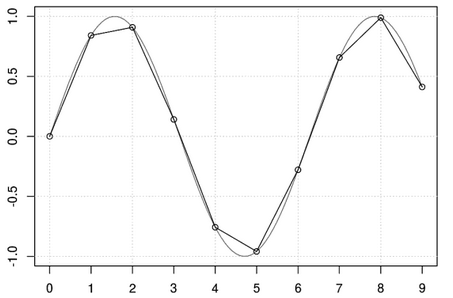
14. Python and R for the Modern Data Scientist: The Best of Both Worlds
↘️ Ideal for: experienced developers new to Python and R programming
↘️ Topics covered: Python, R programming
Python and R for the Modern Data Scientist is the only book on our list that covers Python programming alongside R. It’s geared towards experienced programmers new to R and Python.
The idea is that, by using both languages, you’ll be able to expand your data science skill set.
➡️ Python and R for the Modern Data Scientist is one of the best R programming books for ambitious aspiring data scientists.
You’ll learn the strengths and weaknesses of each language while also learning:
✅ use cases to identify which language is more appropriate
✅ how to integrate Python and R into a single workflow
✅ packages and frameworks
And beyond.
R Programming Books: Oldies But Goodies
Bonus: These next four R programming books are older. But don’t let that fool you. These are still some of the best R programming books on the market.
Even though they aren’t the most up to date, you’ll find some of the most invaluable information on the fundamentals of R programming.
Many people pair these books with some more recent releases for the best all-around education on R programming.
15. The R Book
↘️ Ideal for: R programming newbies
↘️ Topics covered: R fundamentals
The R Book published by Wiley teaches the fundamentals of R programming.
➡️ The R Book is one of the best R programming books for learning the basics.
Featuring full-color graphics, you’ll discover extensive coverage of R fundamentals such as:
✅ data input
✅ graphics
✅ tables
And beyond.
16. The Art of R Programming: A Tour of Statistical Software Design
↘️ Ideal for: R programming newbies
↘️ Topics covered: creating graphs, writing efficient code, packages
Like The Book of R, The Art of R Programming is another bangin’ book by No Starch Press. But at half the length, The Art of R Programming is a more gentle introduction to the language.
And as we mentioned, it is a bit older. So it’s good for learning the building blocks of R programming.
➡️ With The Art of R Programming, you’ll learn how to rearrange complex data into useful visualizations.
You’ll learn all about software development using R, learning beginner and advanced concepts such as:
✅ types
✅ data structures
✅ closures
✅ recursion
And more.
You’ll also learn about functional programming, object-oriented programming and running mathematical simulations.
17. Hands-On Programming with R: Write Your Own Functions and Simulations
↘️ Ideal for: R programming newbies
↘️ Topics covered: data analysis, functions, simulations
Hands-On Programming with R. The title is pretty self-explanatory.
➡️ Hands-On Programming with R is a hands-on book for learning data science.
You’ll learn how to:
✅ load data
✅ assemble data projects
✅ navigate R’s environment
✅ write your own functions
✅ use R’s programming tools
And beyond.
By the end of this book you should be fluent in R, and able to visualize and model data.
18. Learning R: A Step-by-Step Function Guide to Data Analysis
↘️ Ideal for: R programming newbies
↘️ Topics covered: R programming, data analysis
Learning R teaches you how to perform data analysis with R.
➡️ Learning R contains plenty of exercises where you’ll practice writing R code.
Then you’ll explore data analysis concepts such as importing data and publishing it.
No prior programming experience is required.
Best R Programming Books: Conclusion
Today we looked at the best R programming books including:
🔥 Best Overall 🔥
R for Data Science: Import, Tidy, Transform, Visualize, and Model Data
💥 Best for Newbies 💥
The Book of R: A First Course in Programming and Statistics
&
R for Everyone: Advanced Analytics and Graphics
💸 Best Value 💸
R for Excel Users: An Introduction to R for Excel Analysts
So whether you’re a beginner or experienced R programmer, we think these are the best R programming books of all time.
R programmers are also reading:
- 5 Best R Courses This Year [Learn R Programming for Beginners]
- DataCamp Introduction to R Programming [R Basics Course Review]
- 8 Must-Have Data Science Interview Books
- 12 Best Data Science Books for Beginners [Learn Data Science ASAP]
- Top 11 Python Books for Data Science [Learn Data Science using Python]
What is R programming?
R is a programming language and environment intended for graphics and statistical computing. It’s a popular language. In fact, in the TIOBE index, R programming ranks 14th. The R environment is a GNU package written in C, Fortran and R. To learn more about R programming, check out today’s post where we look at R programming books and courses.
What are the best R programming books?
The best R programming books include our overall favorite R for Data Science: Import, Tidy, Transform, Visualize, and Model Data. For newbies, we liked The Book of R as well as R for Everyone: Advanced Analytics and Graphics. And for value, we enjoyed R for Excel Users: An Introduction to R for Excel Analysts. To learn more about these books and other R programming books, be sure to check out today’s post.
Who uses R programming?
Data scientists use R programming. As a matter of fact, according to KDnuggets, some 43% of data scientists use R programming for statistical problems. It’s also widely used among statisticians and data miners in order to developer statistical software and/or analyze data. If you want to learn more about R programming, be sure to check out the books and courses in today’s article.
What companies use R programming?
Some companies that use R programming include Uber, Airbnb, Facebook, Firefox and Amazon. And that’s just for starters. To learn more about this exciting language, be sure to check out today’s post where we’re looking at 18 of the best R programming books of all time.
Is the book R for Data Science worth it?
Yes, we think R for Data Science is worth it. It’s one of the best R programming books for code newbies and experienced R programmers alike. You’ll learn the big picture of the data science cycle alongside basic but important tools. First you’ll find introductions to R programming, RStudio and the tidyverse. Then with ample examples, you’ll learn how to wrangle data, model your data and beyond. To learn more about R for Data Science and other R programming books, be sure to check out today’s article.
![18 best r programming books this year [learn r programming asap]](https://realtoughcandy.com/wp-content/uploads/2021/11/new-best-r-programming-books-1024x576.jpg)
